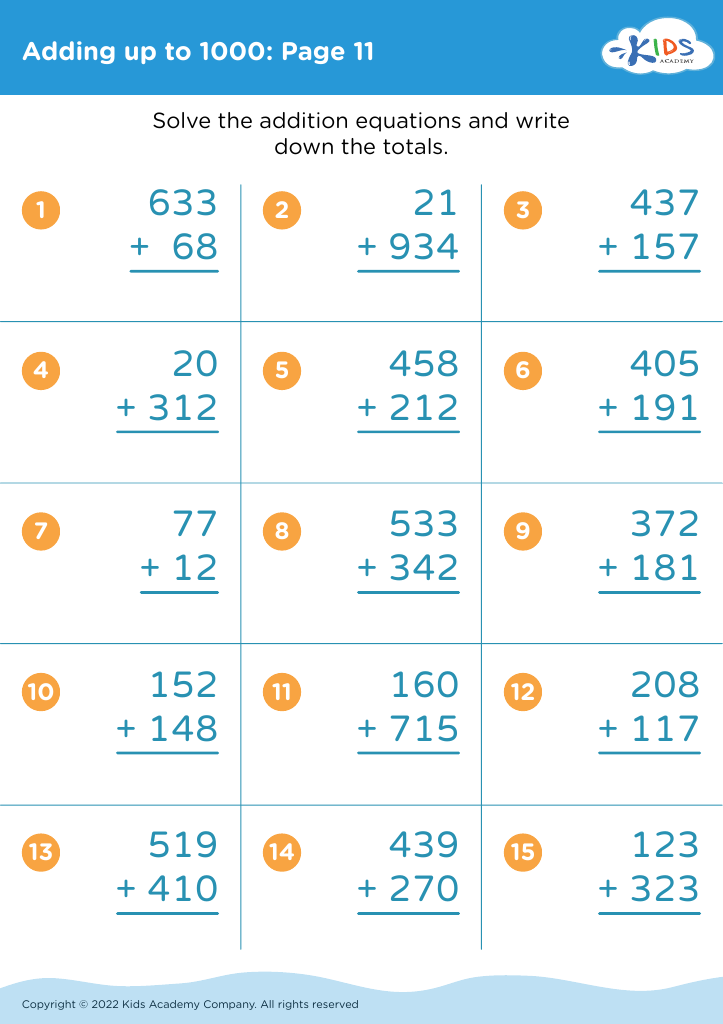Enhance problem-solving Math Worksheets for Ages 5-8
3 filtered results
-
From - To
Unlock critical thinking and boost math skills with our Enhance Problem-Solving Math Worksheets for Ages 5-8. Our meticulously designed printables offer engaging activities that challenge young minds to think creatively and solve problems independently. Each worksheet combines fun scenarios with fundamental math principles, fostering logical reasoning, and practical application. Perfect for early learners, these exercises cover a wide array of topics including addition, subtraction, shapes, and patterns, ensuring foundational competence. Ideal for both classroom and home use, our problem-solving series inspires confidence and curiosity in young learners, paving the way for long-term academic success in mathematics.
Enhancing problem-solving skills in math for children ages 5-8 is crucial for several reasons. Firstly, this age range is a formative period when children develop foundational cognitive skills. Engaging them in problem-solving activities fosters critical thinking, logical reasoning, and analytical skills that are necessary for academic success across subjects.
Moreover, early exposure to problem-solving in math helps children become more comfortable with challenges and develop perseverance. They learn that it’s okay to make mistakes and that persistence leads to solutions, which builds resilience—a key life skill.
By enhancing problem-solving abilities, children also develop confidence in their abilities. This confidence can lead to a more positive attitude towards math, reducing math anxiety and making them more likely to enjoy and excel in the subject later on. Additionally, math is everywhere in real life; from simple tasks like dividing a cake to more complex budgeting, the ability to solve problems mathematically is essential.
Lastly, collaborative problem-solving exercises foster important social skills such as communication, teamwork, and the ability to listen and consider alternative perspectives. Investing effort in enhancing problem-solving skills in these early years lays the groundwork for more advanced learning and helps build well-rounded, capable individuals.






.jpg)












